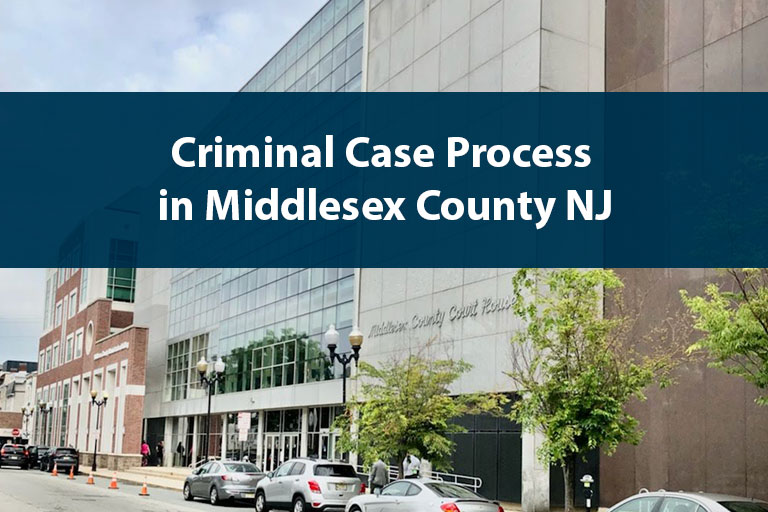Getting arrested is one of the most terrifying ordeals you can go through in life. In fact, studies show contact with the justice system—from arrest to trial—can seriously affect your physical and mental health1.
Continue reading “Criminal Case Process in Middlesex County NJ”New Jersey Criminal Case Process
As a New Jersey criminal defense lawyer with over 25 years of experience, there’s nothing I haven’t seen or heard from my clients.
It’s true that every case is unique—no two are exactly the same. But the one thing they all have in common? The fact that getting arrested is a frightening, alarming experience.
Continue reading “New Jersey Criminal Case Process”How to Deal with False Domestic Violence Accusations in NJ?
No one is disputing the fact that domestic violence is a major crime. Sadly, nearly 20 Americans per minute are physically abused by an intimate partner.
But false domestic violence accusations happen, too. And they can turn your life upside-down for years to come.
Continue reading “How to Deal with False Domestic Violence Accusations in NJ?”False Sexual Assault Accusations in NJ
The state of New Jersey takes a very severe approach to sexual assault accusations. One of the foundations of our country is supposedly “innocent until proven guilty.” The thing is, this seems not to apply once someone makes false sexual assault accusations against you.
Continue reading “False Sexual Assault Accusations in NJ”Hiring an Attorney in New Jersey During The Coronavirus Quarantine

The Law Office of John B. Fabriele, III, LLC supports the collective fight against COVID-19. Our hearts go out to all those impacted by this terrible virus. Following guidance from public health authorities, we understand that practicing social distancing as much as possible is critically important at this time. There is no question this is a time of great uncertainty. While we don’t know exactly what the future may hold, we feel confident that by sticking together and supporting each other, we’ll emerge from this stronger than before.
Continue reading “Hiring an Attorney in New Jersey During The Coronavirus Quarantine”New Jersey Attorney General Seeks Delay in Prosecuting Weed Cases
You read that right, folks! In what some are considering a big step towards legalization (or at least decriminalization), New Jersey Attorney General, Gurbir Grewal sent a letter to all municipal prosecutors in the state directing them to seek adjournments of all marijuana related cases until September 4, 2018 or later. It is being reported that AG Grewal is seeking this delay so that his office may develop “appropriate guidance”, for prosecutors. “What does that mean for my case?” you may be asking.
Continue reading “New Jersey Attorney General Seeks Delay in Prosecuting Weed Cases”Snowmageddon 2015, And The Duty to remove Snow From Your Car in New Jersey
The Blizzard of 2015… In New Jersey, it was the event that never was. However, it is still a good time to remind people of their obligations toy remove snow from their car when it snows, imposed by motor vehicle statute 39:4-77.1, which requires that “Each driver of a motor vehicle operated on a street or highway in the state shall have an affirmative duty to make all reasonable efforts to remove accumulated ice or snow from exposed surfaces of the motor vehicle prior to operation, which surfaces shall include, but not be limited to, the hood, trunk, windshield, windows, and roof of the motor vehicle, the cab of the truck, the top of the trailer or semitrailer being drawn by a motor vehicle, and the top of the intermodal freight container being carried by an intermodal chassis.”
Continue reading “Snowmageddon 2015, And The Duty to remove Snow From Your Car in New Jersey”Possession of a Small Amount of Marijuana in New Jersey
As a New Jersey criminal defense attorney, I have helped countless clients charged with possession of marijuana avoid conviction. Possession of a Small Amount of Marijuana Under 50 Grams, under sub-section (4) of 2C:35-10 is one of the most common disorderly persons offenses a criminal lawyer encounters. Why? Because it is a very popular controlled substance, there is a very casual attitude about it’s use, and it has a strong distinct odor. This means that there are a greater number of people using marijuana than other controlled substances. Because of the casual attitude towards marijuana, people sometimes forget that it is in fact illegal, or resent having to behave in a secretive way about using it when they ought to be more discreet in order to avoid detection. Both raw, unburned marijuana, as well as marijuana smoke have a strong odor which permeates cars, hair, clothes, and even tends to linger outdoors. This gives law enforcement a big advantage in detecting the presence or use of the drug. All this translates into a large number of arrests. My office is located near Rutgers University. I have spoken to many Rutgers and New Brunswick police officers who candidly tell me how prevalent marijuana use seems to be, the high frequency with which they smell it, and how easy making those arrests are.
Continue reading “Possession of a Small Amount of Marijuana in New Jersey”Conditional Dismissal in New Jersey Municipal Courts: One Free Bite at The Apple For First Time Offenders
Conditional Dismissal is a much welcomed diversionary program which was signed into law by Governor Chris Christie (R) as P.L. 2013 c. 158 on September 6, 2013, and went into effective January 4, 2014. It allows those who qualify, charged with disorderly persons or petty disorderly persons offenses in municipal court, an opportunity to keep a clean record provided they successfully complete a 1 year period of probation without any additional criminal convictions. This is a perfect compliment to the Conditional Discharge Program, under N.J.S.A. 2C:36A-1, which works similarly, but applies only to drug offenses, and the Pre-Trial Intervention Program under N.J.S.A. 2C:43-12 which applies to indictable offenses. In a time when the Administrative Office of the Courts, and the New Jersey Attorney General strongly discourage municipal prosecutors from downgrading disorderly persons offenses to non-criminal municipal ordinances, this is a valuable option for prosecutors and defense attorneys resolving cases.
Continue reading “Conditional Dismissal in New Jersey Municipal Courts: One Free Bite at The Apple For First Time Offenders”Hiring an Aggressive New Jersey Criminal Defense Lawyer
Getting arrested or charged with a criminal offense is a scary experience. Whether you saw it coming or it was a complete surprise, in the blink of an eye your life has just taken a drastic turn. Now, you’re sitting in a police car. You’re handcuffed. You’re being questioned by a detective… Hard. You’re saying to yourself the whole time, “I can’t believe this is happening!” The experience of being charge with a crime is extremely upsetting, and can be overwhelming. When it actually happens to you, and you’re confronted with the reality of the situation (and the possible consequences), it can feel like your world is being turned upside down. You’re left feeling confused and scared. Most of all, you just want to know what’s going to happen next.
Continue reading “Hiring an Aggressive New Jersey Criminal Defense Lawyer”



